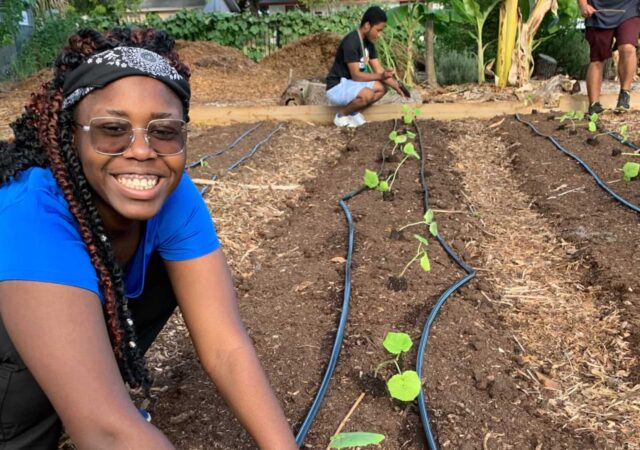“The Politics of Knowledge” is a new compendium from the Global Alliance for the Future of Food about ways funders, researchers, and policymakers can help scale agroecological practices across the globe. “Companies and governments have supported [industrial agriculture] by billions of dollars of investment, which has gone into systems that lock farmers into certain types of production”, says Ronnie Brathwaite, Senior Agriculture Officer at the United Nations Food and Agriculture Organisation (FAO), at a recent symposium focusing on the African region. Industrial agricultural systems rely heavily on inputs from a few major suppliers and often require shipping food products across the globe, Brathwaite says. And weaknesses in these systems threaten food security across Africa and the globe, as recent crises like the Coronavirus disease (COVID-19) pandemic and the war in Ukraine have exposed.
Brathwaite emphasises that systemic change is necessary for food security and food sovereignty. And it’s important for the additional benefits that communities can gain from better farming practices, such as employment opportunities, income generation, strengthened rural economies, and more “That can come from agroecology,” says Brathwaite. Janet Maro, Executive Director of Sustainable Agriculture Tanzania, defines agroecology as a sustainable and holistic farming system that works with nature, reducing the use of heavy external inputs, improving and sustaining biodiversity, recycling resources, and prioritising local supply chains – all of which contribute to climate change mitigation. This is a transformative approach, Maro says: “Agroecology is the way to go, if we aim to feed the growing population and ensure that we’re able to produce food in ways that are sustainable also for the future generations”.
According to results from the Tool for Agroecology Performance Evaluation (TAPE) in Africa, households using more advanced agroecological practices are linked to a range of benefits. They have higher scores in soil health, agrobiodiversity, and the presence of natural vegetation and pollinators, more diversified diets, and better economic performance. Rural areas in Africa with more agroecological farms can sustain more people. They tend to have a higher population and higher employment in farming, and “As a result, young people are less prone to emigrate”, says Dario Lucantoni, Agroecology and Livestock Specialist at the FAO. The TAPE also showed that in areas with more agroecological households, “Women are enjoying higher gender parity and they have more voice in the decision-making”, says Lucantoni. Agroecological practices have already promoted gender equality throughout Northern Malawi, says Lizzie Shumba, Agriculture and Nutrition Manager at Soils, Food and Healthy Communities (SFHC).
SFHC is a non-profit conducting community-based training on agroecology through a participatory co-learning approach. “After applying different agroecological practices involving both men and women, we have seen significant changes in terms of gender relations within the household as well as the community,” says Shumba. This includes equality in ownership of assets, control over income, input in agriculture decisions, workload and leisure, and more. Meanwhile, these households have significantly improved soil fertility, climate resilience, and biodiversity. According to Shumba, they are 32 percent less likely to be severely food insecure per additional food crop grown. But despite the studies presented, Gungu Mibavu, Senior Economist with the Government of Tanzania, says there is not enough scientific evidence to support the commercialisation of agroecological practices. “We’re missing a common platform on this, in the region or as a continent … we could have some agroecological centres or a kind of platform where we can all share what we have, our experiences, and also build knowledge and disseminate issues,” says Mibavu.
For Brathwaite, there is ample evidence to prove agroecology is effective, but it does not see the number of resources devoted to large chemical or seed companies. “That is where the big money lies, and it is within the private sector,” says Brathwaite. “We either need foundations to help us upscale agroecology or we need to woo the private sector over to our way of thinking more about sustainability rather than profit – the latter is more difficult”. Brathwaite emphasises that while the FAO has joined several partners to consolidate agencies, institutions, and farmers’ groups under the Agroecology Coalition, these activities still need donor funding: “Many of the activities that we do are quite modest in terms of the scale at which we can do them because funds are not available”. Throughout the discussion, speakers agree that effectively scaling agroecological practices in Africa will need all sectors and stakeholders at the table. “Farmers alone, scientists alone, or policymakers alone cannot make really big change and also bring the transformation that we need in the food system”, says Maro.

